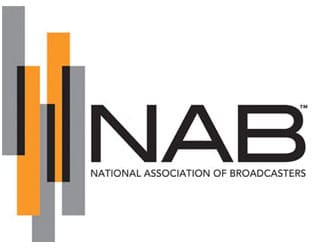It was revealed some time ago that many if not most retired military officers used by news organizations for commentary on hostilities around the world had ties to the Pentagon, defense-related private companies or both. John Dingell (D-MI) asked the FCC in May to look into whether failure to disclose the relationship was a violation of sponsorship identification rules; now word is out that the FCC is doing so. Dingell and others are concerned that analysts had a business interest in providing favorable coverage of military operations abroad in Iraq and Afghanistan, and that their business ties should have been revealed so consumers could make a judgment on how much weight their expressed opinions deserved. According to the Wall Street Journal, the FCC has letters of inquiry to an undisclosed number of analysts.
Democratic Commissioner Jonathan Adelstein issued a strong call to dig into the matter deeply and quickly. He said the issue goes beyond disclosure and may involve violation of the law, and should also be investigated by the Department of Justice.
RBR/TVBR observation: This inquiry hangs on the same regulatory peg as payola, product placement, pay-for-say, secretly-sponsored product demonstrations/reviews and unattributed video and audio news releases. And this particular corner of the controversy figures to generate the most heat – it’s one thing to straddle the edge of the ethical divide to promote a song or a brand of mustard. It’s something else again when coverage of the news is involved, and when the news concerns matters of war and peace, the intensity level ratchets up several more notches. It sounds like the FCC has barely begun this inquiry, and we doubt it will go anywhere in the near future. But it could become much more intense under a new administration, particularly if Adelstein comes out of the 2008 elections with a louder voice.
Here is Adelstein’s full statement:
We have learned about a secretive public relations program operated by the U.S. Defense Department. It recruited, organized and sometimes paid more than 75 retired military analysts to echo the Administration’s themes and messages on the Iraq war and foreign policy. Many of these so-called analysts also worked for military contractors or owned their own military consulting firms. They were granted valuable special access to senior civilian and military leaders, in exchange for their participation in this covert, propaganda operation.
According to news reports, analysts who disagreed with the information given to them lost access. This comes in the wake of new revelations that network executives pressured news reporters to develop Administration-friendly angles when we were heading to war. Senators Obama, Clinton, Kerry, Levin, and Feingold and Chairman Dingell and Congresswoman DeLauro have asked the FCC to investigate. Today, I commit to you that I plan to demand a real and thorough investigation. We need to determine, without delay, whether the DoD violated the laws we enforce against payola.
These rules prohibit anyone involved with preparing broadcast or cable programs from accepting anything of value without disclosing it to the public. They also require broadcast and cable stations to exercise reasonable diligence in determining whether a disclosure is need for materials involving controversial issues of public importance. Were any questions even asked? This is not just a question of journalist ethics and integrity. It is the law. The war in Iraq is clearly a controversial issue of public importance. The American people have a legal right to know when the government is sponsoring the source that is purporting to provide objective analysis.
We need to conclude this investigation quickly. It should not take years, as some other investigations have. Remember how long it took the FCC to investigate the Department of Education’s payments to Armstrong Williams to sell its “No Child Left Behind” agenda? It took the FCC over 2 1/2 years to issue a citation. The good news is that in the end, we finally declared the obvious: he violated the law. This investigation need not, and should not, take that long. There is no excuse for delay.
There is another law that may have been broken here. Congress has specifically outlawed the use of federal funds for covert propaganda. The GAO determined that the “critical element”of covert propaganda is the concealment of the agency’s role in preparing the material from the target audience.
Today, I am also calling on the Department of Justice to launch an investigation into these allegations to determine whether there has been a violation of the federal anti-propaganda statute. The federal anti-propaganda and payola laws are grounded on the principle that the public is entitled to know who seeks to persuade them so they can make up their own minds about the credibility of the information presented. The public has a legal right to know that people who present themselves to be independent, unbiased experts and reporters are not shills hired to promote a corporate – or governmental – agenda.




